

Discover more from Real Gaijin
Demography Bites! FamilyMart Desperately Needs More Franchisees - No Experience Necessary
The latest "help wanted" signs at your local konbini aren't just for clerks; They're for potential store owner-operators.
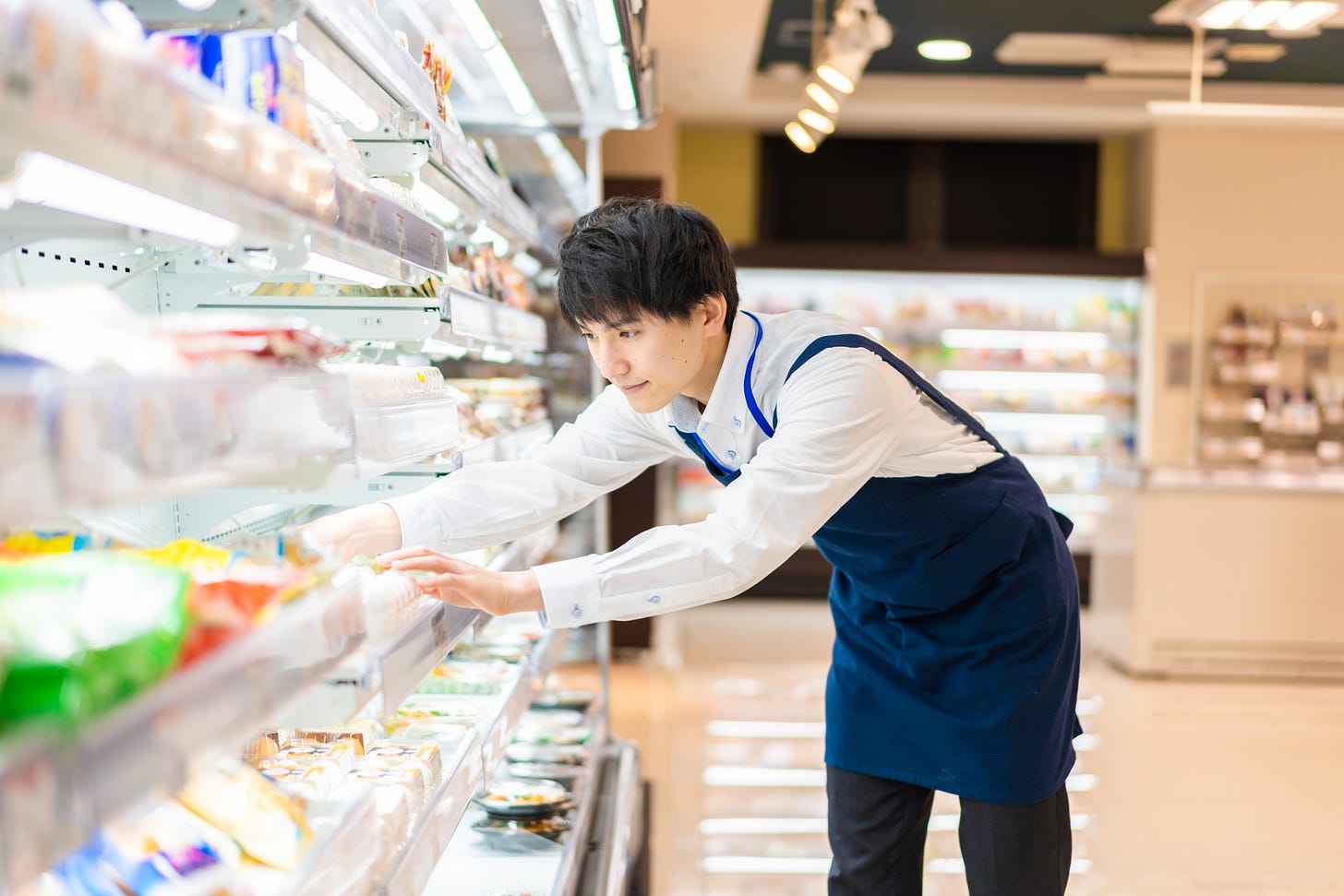
What’s new: FamilyMart, a major convenience store operator, is revising the terms of its franchise agreements to allow people with no store experience to open new stores as sole franchise owners.
Previously, FamilyMart's franchise agreement required that a husband and wife, parent and child, or other couple be the sole owners of a franchise store, with the corporate office paying the cost of the land and building.
However, due to the declining population and increasing number of single-person households, the company will revise these terms beginning in June 2024.
Why it matters: Convenience stores have become an integral part of the daily lives of most Japanese people and resident foreigners. The Ministry of Economy, Trade and Industry defines a convenience store as "a self-service store that sells food and beverages, has a sales area of at least 30 square meters (323 square feet) but less than 250 square meters (2,691 square feet), and is open at least 14 hours a day. Convenience stores are sometimes abbreviated in Japanese as konbini (コンビニ) or ‘CVS.’"
However, the number of convenience stores in Japan has reached a plateau due to population decline and the aging of store owners, making it necessary to secure the human resources needed to maintain and grow each brand’s network of stores.
The convenience store industry consists mainly of "franchise chains1," except for a small portion operated as "regular chains" (directly operated stores).
Specifically, FamilyMart will establish a system that allows a person with no store experience to become an individual owner, the first such system among major convenience store operators.

Fun fact: May 15, 2024 marked the 50th anniversary of the opening of the first full-scale convenience store, a 7-Eleven, in Japan. It was the first brand to adopt the franchise system, in which store owners contract with the company to sell and manage their stores, opening its first store in Toyosu, Koto-ku, Tokyo, in 1974.
Lawson and FamilyMart followed suit in the 1970s, opening a series of franchised convenience stores, and all three brands subsequently accelerated the opening of new stores across the country.
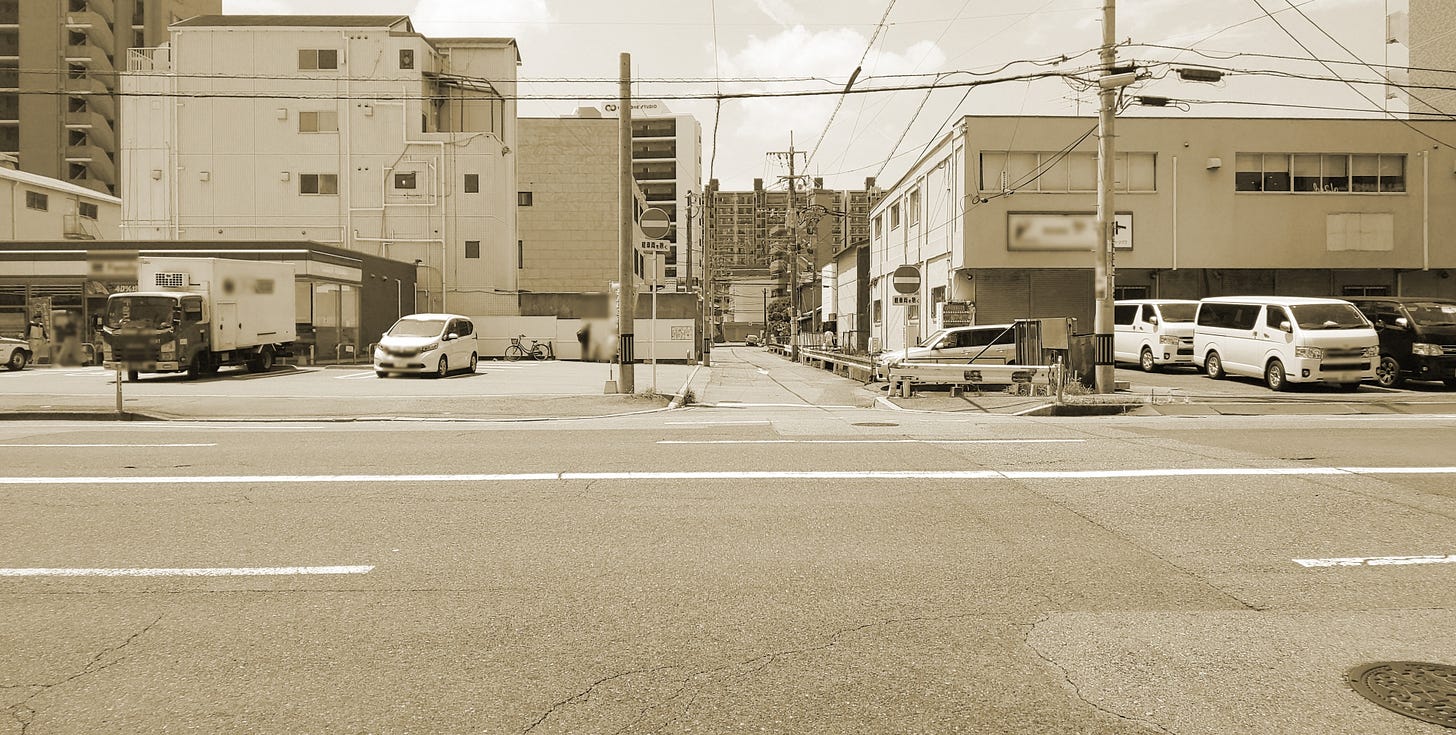
Convenience stores in Japan offer much more than just snacks. The industry is known for a number of innovations. Here are a few milestones from the past half century:
1975: 7-Eleven began operating 24/7 (despite its name)
1978: 7-Eleven introduced hand-rolled rice balls called onigiri (おにぎり)
1979
Lawson introduced made-to-order fried foods
7-Eleven introduced in-store oden (おでん)2
1980: 7-Eleven added industrial-grade microwave ovens to heat bento boxes behind the counter.
1982
Coin-operated copiers debuted in stores
Convenience stores began accepting package deliveries
7-Eleven introduced point-of-sale (POS) technology
1987: 7-Eleven began accepting payment for public utility bills (e.g., gas and electricity)
1996: Lawson began selling postage stamps
1997: Lawson made access to its restrooms free for all
1999: ampm (acquired by FamilyMart in 2009) introduced bank ATMs
2003: Lawson introduced mailboxes for regular delivery
2006: FamilyMart launched its signature fried chicken
2007
7-Eleven began accepting electronic payments without cash or credit card payments
7-Eleven launched its first line of private label products
FamilyMart introduced a proprietary loyalty card system
2009: Lawson launched its signature candy portfolio
2011
7-Eleven launched its home delivery service to reach seniors (similar to a roving food truck that sells a limited selection of store merchandise around the neighborhood)
Lawson launched its signature freshly brewed coffee
To keep up with the latest trends in what's happening in Japan's vast network of convenience stores, check out the Conbini Boys Substack.
Go deeper: In addition to digitizing operations such as product ordering and staff shift management, FamilyMart claims that after a new store opens, the corporate office will provide more extensive support for store managers and staff training.
FamilyMart has an attractive new online advertisement on its website to explain "owner support.” Some of the highlights of this promotion, which is clearly aimed at young recruits, are as follows:
Safe, even if it's your first time.
Generous support.
Start a business with as little as 1.5 million yen (US $9,500).
Existing track record of operator-owners who started their own businesses at the age of 20.
"Becoming a convenience store owner means starting a business. Own your own store. Run the business with your own staff. It must be a lot of anxiety for a first-timer. That is why FamilyMart strives to be the #1 convenience store with generous financial and operational support both before and after you become an owner. We will always be there to support you. We have a system in place to make those who do not have the opportunity to become an owner right away think, ‘Maybe (sometime in the future) I can do it.’ Please contact us.” - FamilyMart advertising to recruit new owner-operator franchisees
The company does indeed guarantee a gross income of 20 million yen ($127,400), although they clarify that this is only for 24/7 stores and does not equate to a guarantee of operating income (after expenses). They go on to explain that there are other "store operation support" payments and management subsidies, as well as how "headquarters pays 90% of the actual cost of utilities (up to 3.6 million yen ($23,000) per year) and bears 10% ~ 25% of the cost of waste loss.
What they’re saying: FamilyMart features several testimonials on its recruiting website.
"I studied law in college, but I could never see myself as a lawyer or a corporate employee. I wanted to start my own company. I wanted to work quickly, so I quit college and got a job at a yakiniku (barbecue) chain. The work was fulfilling, but I thought I could apply my talents more effectively in a job where I would have more frequent contact with customers, so I joined FamilyMart at the age of 23. After joining the company, I focused on the obvious: cheerful greetings, cleanliness of the store, and conversations with customers. I strive to provide the kind of store that many people want to go to and be the kind of person they want to meet.” - Owner Operator Mr. Yasuki Yagi (comments made when he was 23, now 28)
It is clear that the company is targeting a young demographic.
"After graduating from high school, I started working at a convenience store. When I became a store manager, I felt a strong desire to 'test my ideas more' and I began to feel a bit restricted as an employee, so I decided to start my own business. This job involves a lot of communication with regular customers, and as someone who loves to serve customers, it is a perfect fit for me.” - Mr. Akihiro Matsuki (comments made when he was 20, now 24)
These are powerful success stories.
"When Akihiro Matsuki's first store opened, I started working as a staff member right from the beginning. I wanted to try my hand at store management next. So when I heard about his plans to open a second store, I decided to take on that responsibility. I am very happy to have become the manager because more and more regular customers tell me that this store provides a welcoming environment.” - Ms. Mayuki Kondo, a twenty-something manager of Akihiro Matsuki's second FamilyMart store
What a great opportunity for budding entrepreneurs who may be a little short on cash.
"I decided to go into business for myself when I was in my mid-30s with the desire to create a company where employees could work comfortably. While I experienced some difficult times when I first became independent, with the generous support of supervisors and the head office, I began to feel a little more relaxed after six months. Each store is now in a position where the manager is in charge. On a personal front, I enjoy traveling with my wife three times a year. We also usually have dinner at home and are able to take one day off a week. In the future, we would like to have 10 stores. Mr. and Mrs. Ryo and Junko Kibata, who now own and operate six FamilyMart stores and were 35 when they started, now 42)
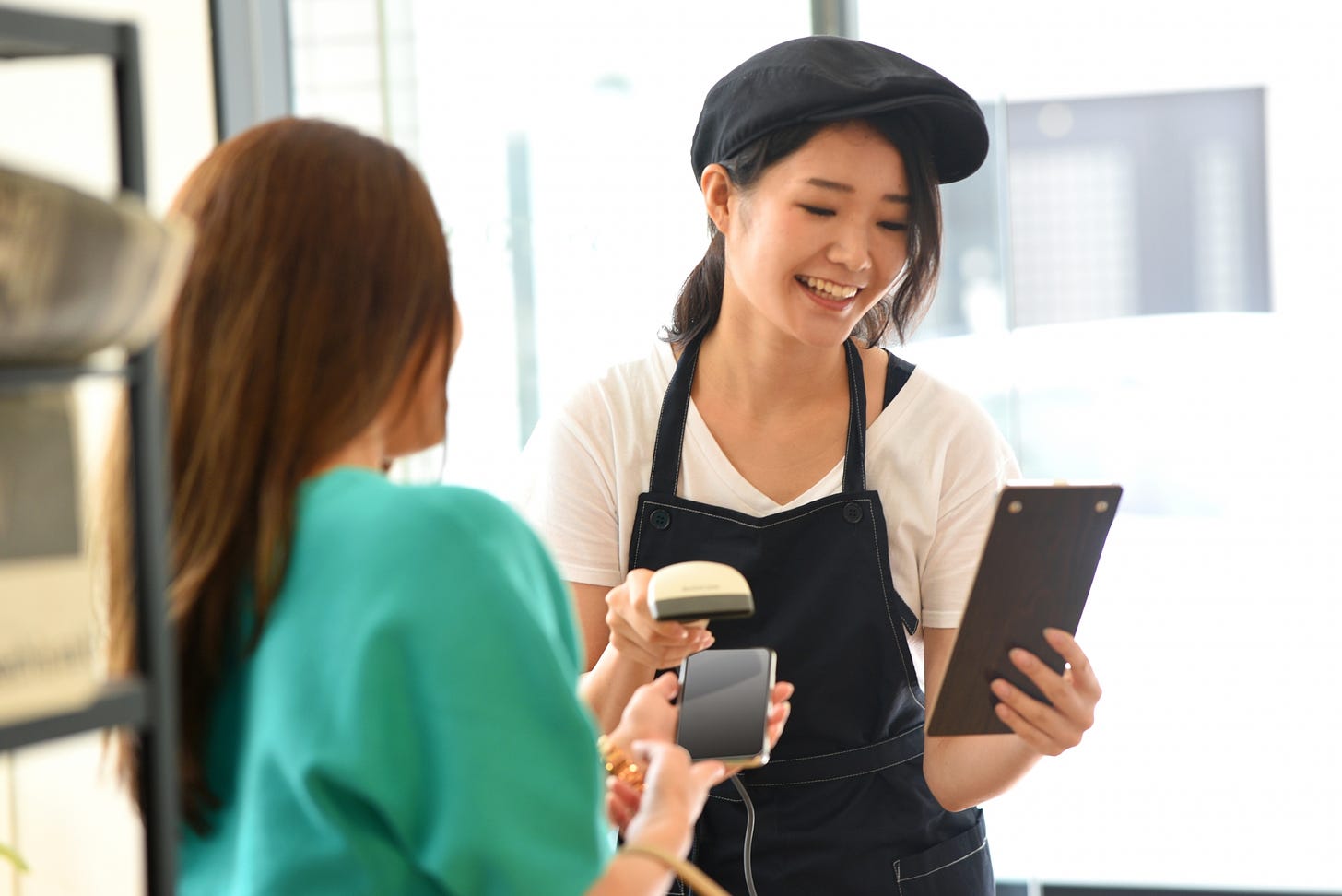
By the numbers: It is hard to imagine Japan without the now ubiquitous konbini, which seem to be on almost every major street corner.
7 Major Chains: Japan's convenience store industry is dominated by 7 major players, including 7-Eleven, FamilyMart, Lawson, Ministop, Seicomart, Daily Yamazaki, and Poplar, but the top three, including 7-Eleven, FamilyMart, and Lawson, control the lion's share of the market. 7-Eleven has more than twice as many stores overseas as in Japan, while the others are all much more concentrated in the domestic market3.
One Convenience Store for about Every 2,250 People: According to the Japan Franchise Chain Association, an industry organization, there were 55,620 convenience stores in Japan as of March 2024.
Huge Sales Volume: In 2023, the total sales of convenience stores in Japan amounted to 11.6593 trillion yen (approximately $74 billion).
Frequent Customer Visits: The number of customers visiting stores per year is 17.4 billion, which is approximately 145 visits per year per person, or 12 visits per month, meaning that a Japanese person visits a convenience store at least once every three days.
(but) No Growth in Japan: However, the number of stores in Japan has remained flat in recent years due to the declining population and other factors, and the major convenience store operators are facing the challenge of finding new demand for future growth.
Overseas Potential: All of the biggest players are now focusing their efforts on developing their brands overseas, where future growth is expected.

Commentary: While "n of 2" does not indicate a pattern, FamilyMart's bold move seems similar to the actions of the Super Hotel. See "Innovative 'Venture Innkeeper Program' in Japan Seems Almost Too Good to Be True: The Super Hotel's 'elevator pitch' presents an unusual business opportunity for would-be entrepreneurs with a relatively low tolerance for risk" for more details.
At the very least, this initiative of FamilyMart represents another great opportunity for young entrepreneurs with a long "runway" who want to be their own boss but lack the capital and/or initiative to start from scratch.
Demography, like karma, has a way of catching up, and the retribution can be brutal. What is happening in Japan's convenience store industry may be an early indicator of the kind of structural changes that demographics will bring to Japanese society in the coming decades.
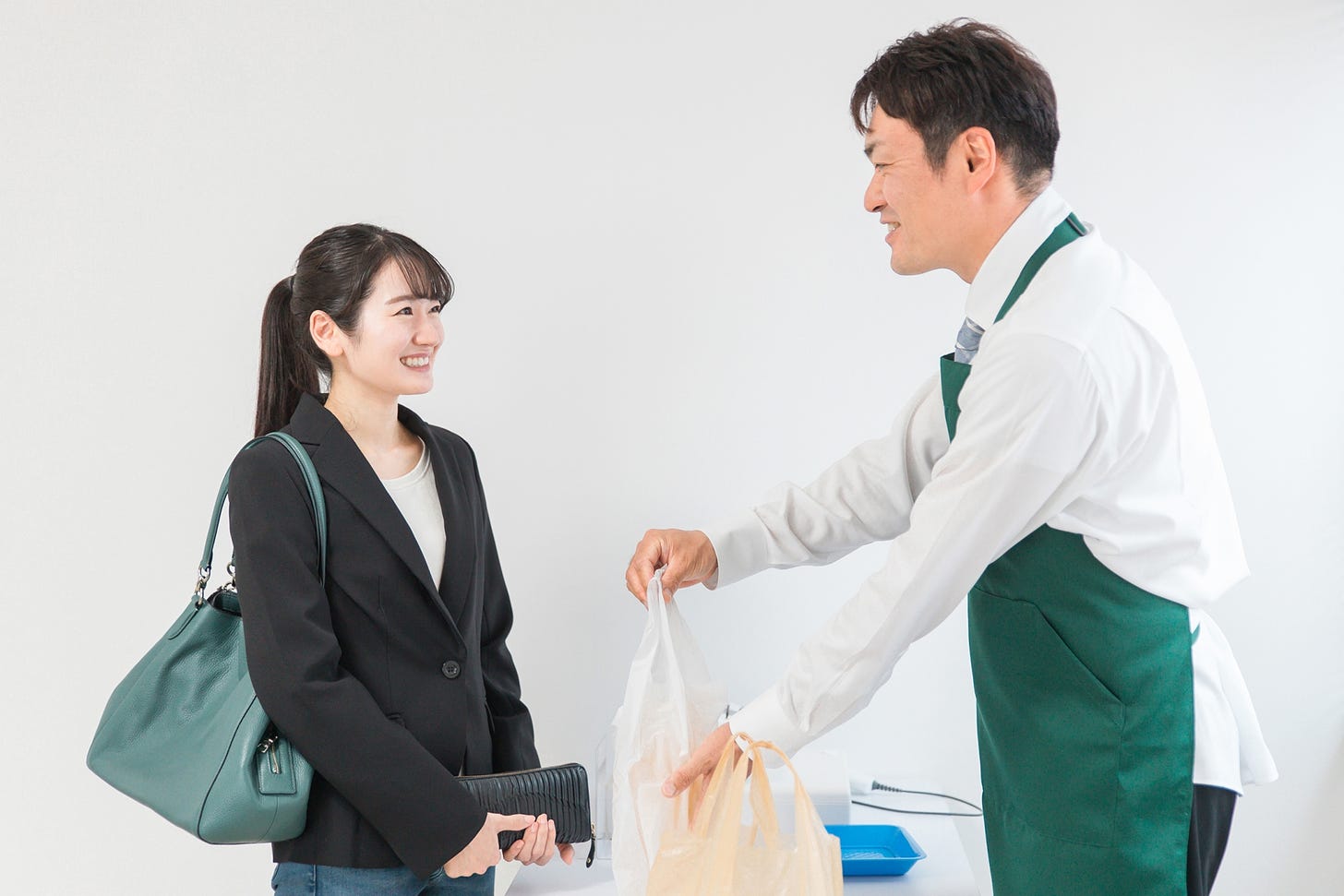
What's next: While Japan's convenience store industry is currently facing an acute labor shortage, which is causing them to reduce store hours (perhaps returning to the original 7 a.m. ~ 11 p.m. model), open smaller stores, launch unmanned stores like Amazon Go in the U.S, form alliances with other industries such as Japan Post Group (the post office), focus on online home delivery, and devote more resources to overseas expansion, it is doubtful that their customers in Japan will want to see too many major changes to their beloved konbini.
Japan's long-term population decline is likely to affect the balance of power between franchisors and their franchisees. Ultimately, it may change the way profits are shared. The amount of royalties paid by franchisees to the franchisor is calculated by multiplying their gross profit by a predetermined ratio. Depending on the company, royalties range from approximately 40% ~ 60%. While the responsibility of the typical franchisee to pay half or more of all gross profits may seem excessive, it is said that in return the corporate office provides extensive management support. This ratio may, however, change in the future, giving franchisees additional leverage.
What do you think? Assuming you have a relatively long "runway" ahead of you in your career, would you be interested in owning and operating a new FamilyMart in Japan? It could lead to the development of your own mini empire of convenience stores in a particular region. All responses are completely anonymous, even to the author.
Links to Japanese Sources: https://www3.nhk.or.jp/news/html/20240530/k10014465071000.html, https://www3.nhk.or.jp/news/html/20240515/k10014449601000.html, https://careerticket.jp/media/article/1682/, https://asahi.gakujo.ne.jp/research/industry_topics/detail/id=3345, and https://www.family.co.jp/company/fc/lp/owner-support.html.
#ConvenienceStore #konbini #conbini #FamilyMart #711 #SevenEleven #Ministop #Seicomart #DailyYamazaki # Poplar #Lawson #franchise #franchisee #コンビニ #ファミリーマート #ローソン #セブンイレブン #ミニストップ #セイコーマート #デイリーヤマザキ #ポプラ #フランチャイズ #人口減少 #オーナー高齢化 #人材確保 #未経験者 #コンビニエンスストア業界 #レギュラーチェーン #直営店 #フランチャイズチェーン #FC方式 #加盟店経営者
Please note that you can subscribe to Real Gaijin for free. If you are so inclined, you can also purchase an annual subscription for a relatively small fee.
However, I understand that even the lowest level of annual subscription allowed by Substack may seem too high for many. If you just want to buy a coffee for Real Gaijin (or maybe a green tea), you can also make a small donation here:
https://buymeacoffee.com/realgaijin
All levels of support - including just liking a particular article and/or leaving a comment - are very welcome. Thanks again for reading.
While Real Gaijin lives in Substack, you can also find Real Gaijin on a few other platforms (listed in alphabetical order).
https://www.instagram.com/real_gaijin_on_substack/
https://www.threads.net/@real_gaijin_on_substack
https://www.tiktok.com/@real.gaijin
https://www.youtube.com/@RealGaijin
https://www.linkedin.com/in/mark-kennedy-5b50b71/
A franchise is a system in which a convenience store owner-operator obtains the rights to use a brand’s signage and pays its franchise head office for the use of its products, advertising, management know-how, etc. A contract is signed between the "franchisee," which is dedicated to store management and sales, and the " franchisor" (brand owner), that provides all kinds of support related to management.
Also, unique to franchised convenience store operations is the relationship between the "supervisor (SV)," a management consultant who works for the corporate office, and the "franchisee manager," the business owner who manages the franchised store. It is common for those entering the industry to work in the field as store managers before moving up the ladder to a more senior position while learning store management as an SV.
Vegetables, fish dumplings, and various other articles of food stewed in a thin soy soup and served hot.
Including stores in Japan, 7-Eleven operates approximately 50,000 stores in 16 countries and plans to increase the number of overseas stores to 65,000 by the end of fiscal year 2026. In 2021, the company acquired Speedway in North America, which helped strengthen its international operations.
FamilyMart operates more than 8,300 stores in Asia, primarily in Taiwan and China.
Lawson has more than 3,500 stores, mainly in China.
Ministop focuses on South Korea and has more stores there than in Japan.
Subscribe to Real Gaijin
Unveiling the Real Japan: An American Expat's Inside Look | Hot takes, commentary, and unfiltered insights on life as a foreigner in Japan.






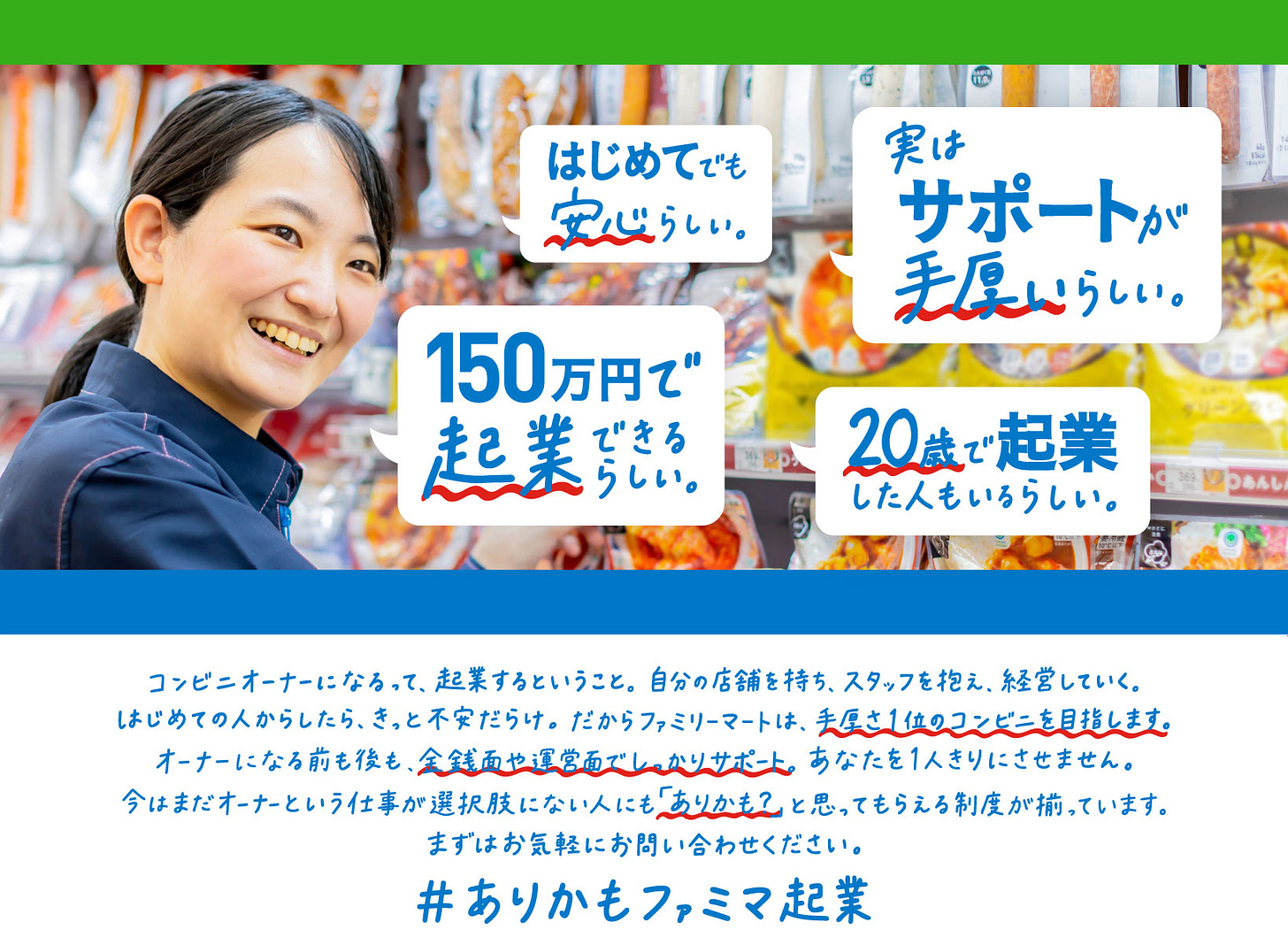

















Very interesting. I remember reading many years ago in the Japan Times that in Tokyo the average konbini turned over their stock 7 times a day. Any idea if this is still the case? Did you see any stats on that? Thanks
The konbini network is definitely one of the jewels in Japan's crown. As someone who enjoys exploring the back roads of Japan, the spotlessly-clean rest rooms and the wide range of snack foods available are both a godsend. I also pay all my utility bills and taxes through Lawson - and who doesn't enjoy a juicy famichiki?!
As for operating a konbini, I would be concerned that a 24/7 business would be something of a ball-and-chain, especially if it did not generate enough income to employ enough staff to give me and my family a good work-life balance. I guess location is, as usual, everything!